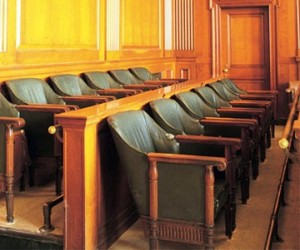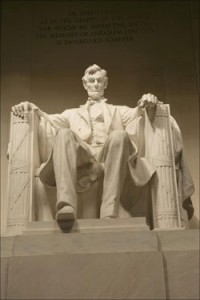New York Grand Juries
 The function of the grand jury is to examine evidence presented by the prosecutor and determine whether there is probable cause to return an indictment. Approximately half of the states in the U.S. employ grand juries and twenty-two require their use, including New York State. A grand jury consists of no less than 16 jurors and no more than 23. Grand jurors are drawn from the same pool of potential jurors as are any other jury panel, and in the same manner. The pool generally consists of names pulled from various databases, such as national voter lists, motor vehicle license lists and public utilities lists. Unlike trial jurors, grand jurors do not undergo lengthy questioning by attorneys. Rather, grand jurors are rarely disqualified. If you are selected to be a grand juror by the Commissioner of Jurors, it is very likely that you will be seated and sworn as a grand juror. Article 190 of the Criminal Procedure Law is the legal framework for the grand jury. Section 190.05 through section 190.90 governs the grand jury and its proceedings. The prosecutor acts as the legal advisor to the grand jury. In each case, the prosecutor presents evidence and witness testimony. Typically, only the prosecutor, the witness, a court stenographer and the grand jury are present in the grand jury room; there is no judge. Each witness may be given a grant of immunity for their testimony pertaining only to self-incriminating information. If a witness refuses to testify before a grand jury, they risk being held in contempt of court. Each grand juror and the prosecutor is sworn to secrecy, pursuant to Rule 6(e) of the Federal Rules of Criminal Procedure. This ensures that the grand jury is free to deliberate without outside pressure and prevents perjury or witness tampering prior to a trial. It further encourages people with information about a crime to speak freely. Secrecy protects the innocent accused from disclosure of the fact that he or she is being investigated. The prosecutor will draft the charges and read them to the grand jury. The prosecutor will question each witness and the grand jurors are permitted to ask the witness additional questions at the end of each witness’s testimony. The prosecutor may instruct the witness not to answer a grand juror’s question if they feel that there is a subsequent witness who would be better prepared to answer the question or the prosecutor believes the question is improper or outside the rules of allowable evidence. The grand jury does not decide if the subject of a grand jury investigation is guilty or not. Based on the evidence and testimonies presented, the grand jury decides whether or not the subject should be formally charged with the crime or offense. That decision must be based upon the evidence and the law. The grand jury can either vote (1) to indict, (2) to dismiss, (3) to direct the prosecutor to file an “information” accusing the subject of a lesser offense, (4) refer a matter to family court, or (5) issue a grand jury report.
The function of the grand jury is to examine evidence presented by the prosecutor and determine whether there is probable cause to return an indictment. Approximately half of the states in the U.S. employ grand juries and twenty-two require their use, including New York State. A grand jury consists of no less than 16 jurors and no more than 23. Grand jurors are drawn from the same pool of potential jurors as are any other jury panel, and in the same manner. The pool generally consists of names pulled from various databases, such as national voter lists, motor vehicle license lists and public utilities lists. Unlike trial jurors, grand jurors do not undergo lengthy questioning by attorneys. Rather, grand jurors are rarely disqualified. If you are selected to be a grand juror by the Commissioner of Jurors, it is very likely that you will be seated and sworn as a grand juror. Article 190 of the Criminal Procedure Law is the legal framework for the grand jury. Section 190.05 through section 190.90 governs the grand jury and its proceedings. The prosecutor acts as the legal advisor to the grand jury. In each case, the prosecutor presents evidence and witness testimony. Typically, only the prosecutor, the witness, a court stenographer and the grand jury are present in the grand jury room; there is no judge. Each witness may be given a grant of immunity for their testimony pertaining only to self-incriminating information. If a witness refuses to testify before a grand jury, they risk being held in contempt of court. Each grand juror and the prosecutor is sworn to secrecy, pursuant to Rule 6(e) of the Federal Rules of Criminal Procedure. This ensures that the grand jury is free to deliberate without outside pressure and prevents perjury or witness tampering prior to a trial. It further encourages people with information about a crime to speak freely. Secrecy protects the innocent accused from disclosure of the fact that he or she is being investigated. The prosecutor will draft the charges and read them to the grand jury. The prosecutor will question each witness and the grand jurors are permitted to ask the witness additional questions at the end of each witness’s testimony. The prosecutor may instruct the witness not to answer a grand juror’s question if they feel that there is a subsequent witness who would be better prepared to answer the question or the prosecutor believes the question is improper or outside the rules of allowable evidence. The grand jury does not decide if the subject of a grand jury investigation is guilty or not. Based on the evidence and testimonies presented, the grand jury decides whether or not the subject should be formally charged with the crime or offense. That decision must be based upon the evidence and the law. The grand jury can either vote (1) to indict, (2) to dismiss, (3) to direct the prosecutor to file an “information” accusing the subject of a lesser offense, (4) refer a matter to family court, or (5) issue a grand jury report.
If You Are A Grand Juror
 The Commissioner of Jurors will advise you that you have been selected as a grand juror.
The Commissioner of Jurors will advise you that you have been selected as a grand juror.- You will report to the courthouse in Ballston Spa on the appointed day and time.
- You will pass through court security and proceed to the jury lounge.
- You will watch a DVD prepared by the Office of Court Administration that will give you some basics about jury service and the history of the jury system. Judge Judith Kaye, Chief Judge of the Court of Appeals of the State of New York, the state’s highest judge, will address you and provide useful information to make your jury experience more interesting and meaningful.
- You will be oriented by the Commissioner and the District Attorney.
- You will be sworn in as a grand juror by the county court judge.
- You will be oriented in the Grand Jury Chamber in the Saratoga County District Attorney’s Office, Building 4, Municipal Center, Ballston Spa, NY.
You will no longer use the call in service for jury duty, as you have been selected to sit and have been sworn in as a grand juror for Saratoga County.
Be Prepared
It may be helpful to bring reading material, paperwork or a craft, as there may be some waiting time prior to your being sworn in or prior to your orientation. You may also want to dress in layers (i.e. a sweater or light jacket) as sometimes the grand jury room temperature may fluctuate. Coffee is available for a nominal fee and you may bring your own bottled water into the Grand Jury Chamber. A refrigerator is available should you need to keep a beverage or snack cold. You do not need to have read anything prior to your orientation or swearing in ceremony. All materials, including a copy of Article 190 of the Criminal Procedure Law, will be provided to you. You are required to listen to the orientation and read Article 190 prior to hearing your first case.
The Saratoga County Grand Jury Schedule
Please “Click” the Login link below if you are presently a Grand Juror and you need to find out when you will be hearing cases.

 The Commissioner of Jurors will advise you that you have been selected as a grand juror.
The Commissioner of Jurors will advise you that you have been selected as a grand juror.